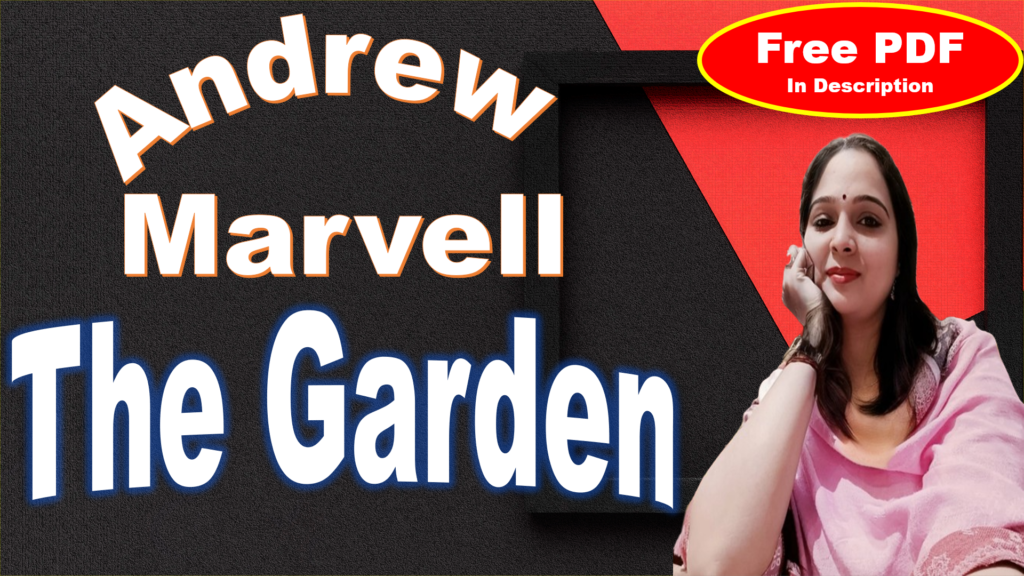
The Garden by Andrew Marvell | The Garden | Andrew Marvell | Explanation | Summary | Word Meaning | Questions Answers | Critical Appreciation | Free PDF Download – Easy Literary Lessons
The Garden by Andrew Marvell
How vainly men themselves amaze
To win the palm, the oak, or bays,
And their uncessant labours see
Crown’d from some single herb or tree,
Whose short and narrow verged shade
Does prudently their toils upbraid;
While all flow’rs and all trees do close
To weave the garlands of repose.
Fair Quiet, have I found thee here,
And Innocence, thy sister dear!
Mistaken long, I sought you then
In busy companies of men;
Your sacred plants, if here below,
Only among the plants will grow.
Society is all but rude,
To this delicious solitude.
No white nor red was ever seen
So am’rous as this lovely green.
Fond lovers, cruel as their flame,
Cut in these trees their mistress’ name;
Little, alas, they know or heed
How far these beauties hers exceed!
Fair trees! wheres’e’er your barks I wound,
No name shall but your own be found.
When we have run our passion’s heat,
Love hither makes his best retreat.
The gods, that mortal beauty chase,
Still in a tree did end their race:
Apollo hunted Daphne so,
Only that she might laurel grow;
And Pan did after Syrinx speed,
Not as a nymph, but for a reed.
What wond’rous life in this I lead!
Ripe apples drop about my head;
The luscious clusters of the vine
Upon my mouth do crush their wine;
The nectarine and curious peach
Into my hands themselves do reach;
Stumbling on melons as I pass,
Ensnar’d with flow’rs, I fall on grass.
Meanwhile the mind, from pleasure less,
Withdraws into its happiness;
The mind, that ocean where each kind
Does straight its own resemblance find,
Yet it creates, transcending these,
Far other worlds, and other seas;
Annihilating all that’s made
To a green thought in a green shade.
Here at the fountain’s sliding foot,
Or at some fruit tree’s mossy root,
Casting the body’s vest aside,
My soul into the boughs does glide;
There like a bird it sits and sings,
Then whets, and combs its silver wings;
And, till prepar’d for longer flight,
Waves in its plumes the various light.
Such was that happy garden-state,
While man there walk’d without a mate;
After a place so pure and sweet,
What other help could yet be meet!
But ’twas beyond a mortal’s share
To wander solitary there:
Two paradises ’twere in one
To live in paradise alone.
How well the skillful gard’ner drew
Of flow’rs and herbs this dial new,
Where from above the milder sun
Does through a fragrant zodiac run;
And as it works, th’ industrious bee
Computes its time as well as we.
How could such sweet and wholesome hours
Be reckon’d but with herbs and flow’rs!





